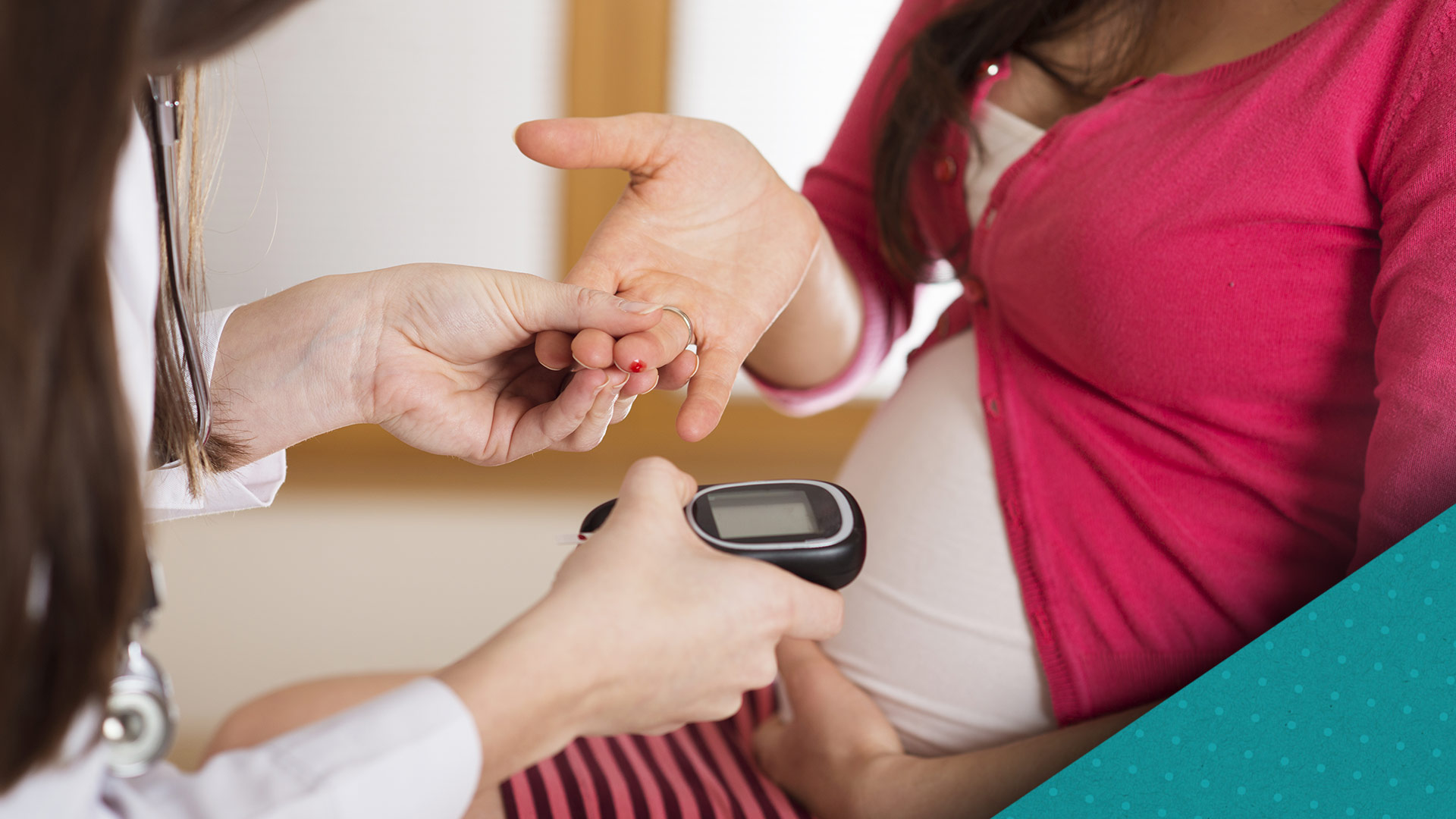Gestational diabetes is high blood sugar (glucose) that develops during pregnancy due to hormonal changes and usually disappears after giving birth. It can happen at any stage of pregnancy but it is more common during the second or third trimester.
It occurs when your body cannot produce adequate insulin (a hormone that helps regulate your blood sugar levels) to meet your extra needs during pregnancy. Gestational diabetes may cause problems for you and your baby during pregnancy and after birth, however, the risks can be minimized if the condition is detected early and managed well.
Gestational diabetes risk factors
Any pregnant woman can develop gestational diabetes, but you are more likely to get it if:
- your body mass index (BMI) is above 30
- you have prediabetes
- you had gestational diabetes during a previous pregnancy
- you have polycystic ovary syndrome (PCOS)
- you have an immediate family member with diabetes
- you previously gave birth to a baby weighing 4.5kg or more
- you are a south Asian, Black, African-Caribbean, or Middle-Eastern origin
Symptoms of gestational diabetes
Most of the time, gestational diabetes does not have noticeable symptoms or signs. Most cases are usually learned when your blood sugar levels are tested during the screening for gestational diabetes.
However, some women may develop the following symptoms if their blood sugar levels are too high:
- increased thirst
- increased, frequent urination
- fatigue
- nausea and vomiting
- weight loss even with increased appetite
- blurred visions
- yeast infections
Causes of gestational diabetes
Researchers have not yet found the reason why some women get gestational diabetes and some don't. Excess weight before pregnancy often plays a role. Normally, various hormones work to keep blood sugar levels in check. However, during pregnancy, hormone levels change, making it harder for the body to process blood sugar efficiently. Hence, causes blood sugar to rise.
Complications that may affect your baby
Most women with gestational diabetes have otherwise normal pregnancies with healthy babies. However, it can expose your baby to increased risks of:
- excessive birth weight - if your blood sugar level is higher than the normal range, it can cause your baby to grow larger than usual.
- early (preterm) birth - high blood sugar may increase the risk of early labour and delivery before the due date.
- serious breathing difficulties - babies born early can experience respiratory distress syndrome.
- low blood sugar - sometimes babies have low blood sugar (hypoglycemia) shortly after birth, and severe episodes of hypoglycemia can cause seizures in babies.
- obesity and type 2 diabetes later in life
- stillbirth - untreated gestational diabetes may result in a baby's death either before or shortly after birth.
Complications that may affect you
Gestational diabetes can also increase your risk of:
- high blood pressure or preeclampsia - a serious complication of pregnancy that causes high blood pressure and other symptoms that can threaten both your and baby's lives.
- having a surgical delivery (C-section)
- future diabetes - you are more likely to get gestational diabetes again in future pregnancies and have a higher risk of developing type 2 diabetes as you get older.
How to prevent gestational diabetes
- eat healthy foods - choose foods high in fibre and low in fat and calories. Focus on fruits, vegetables, and whole grains. Watch portion sizes.
- stay active - exercising before and during pregnancy can help prevent you from getting gestational diabetes. Aim for 30 minutes of moderate activity for most days of the week.
- start pregnancy at a healthy weight - losing extra weight beforehand may help you have a healthier pregnancy.
- don't gain more weight than recommended - gaining too much weight too quickly can increase your risk of getting gestational diabetes. Consult your doctor about what a reasonable amount of weight gain is for you.
















